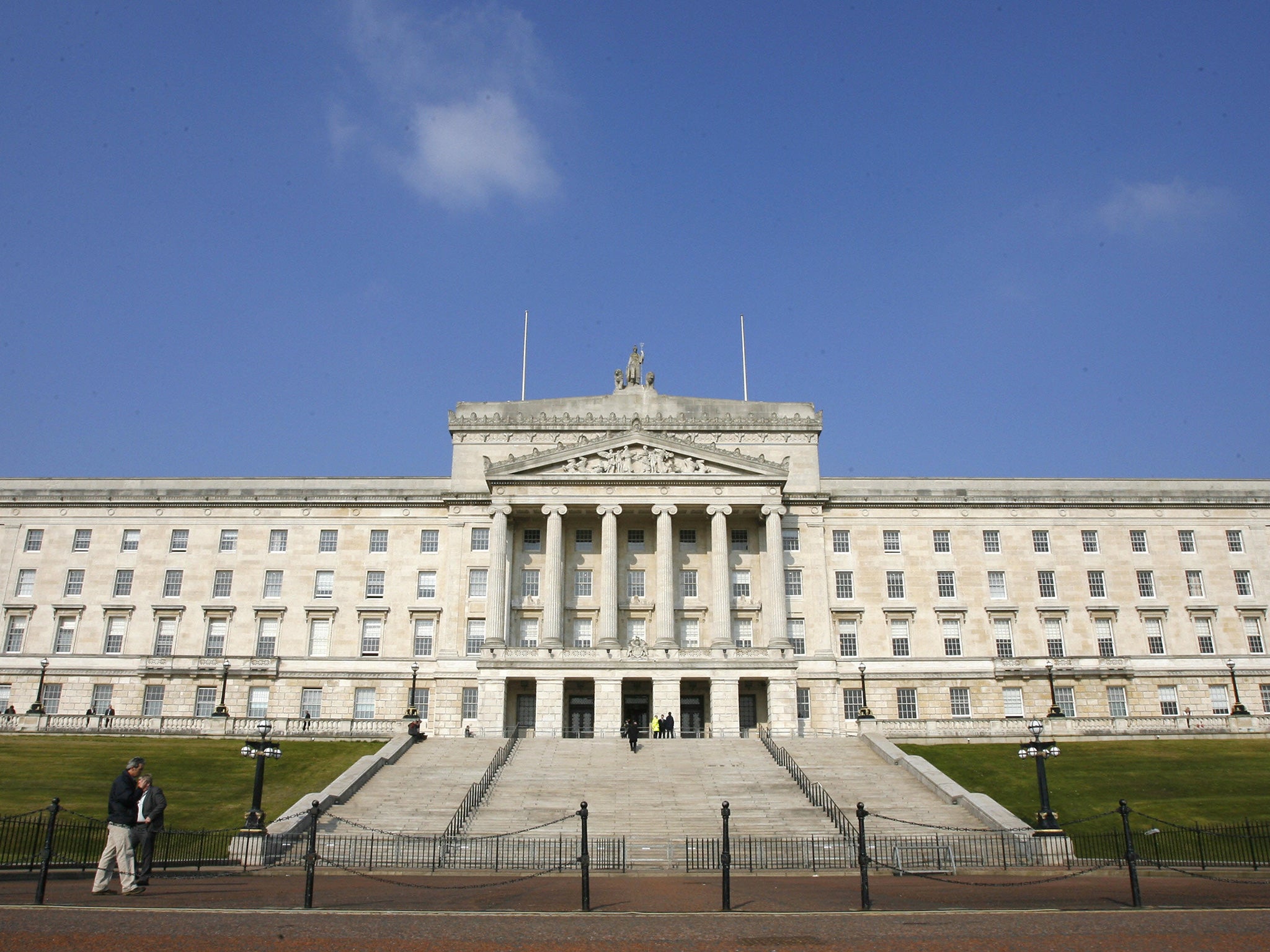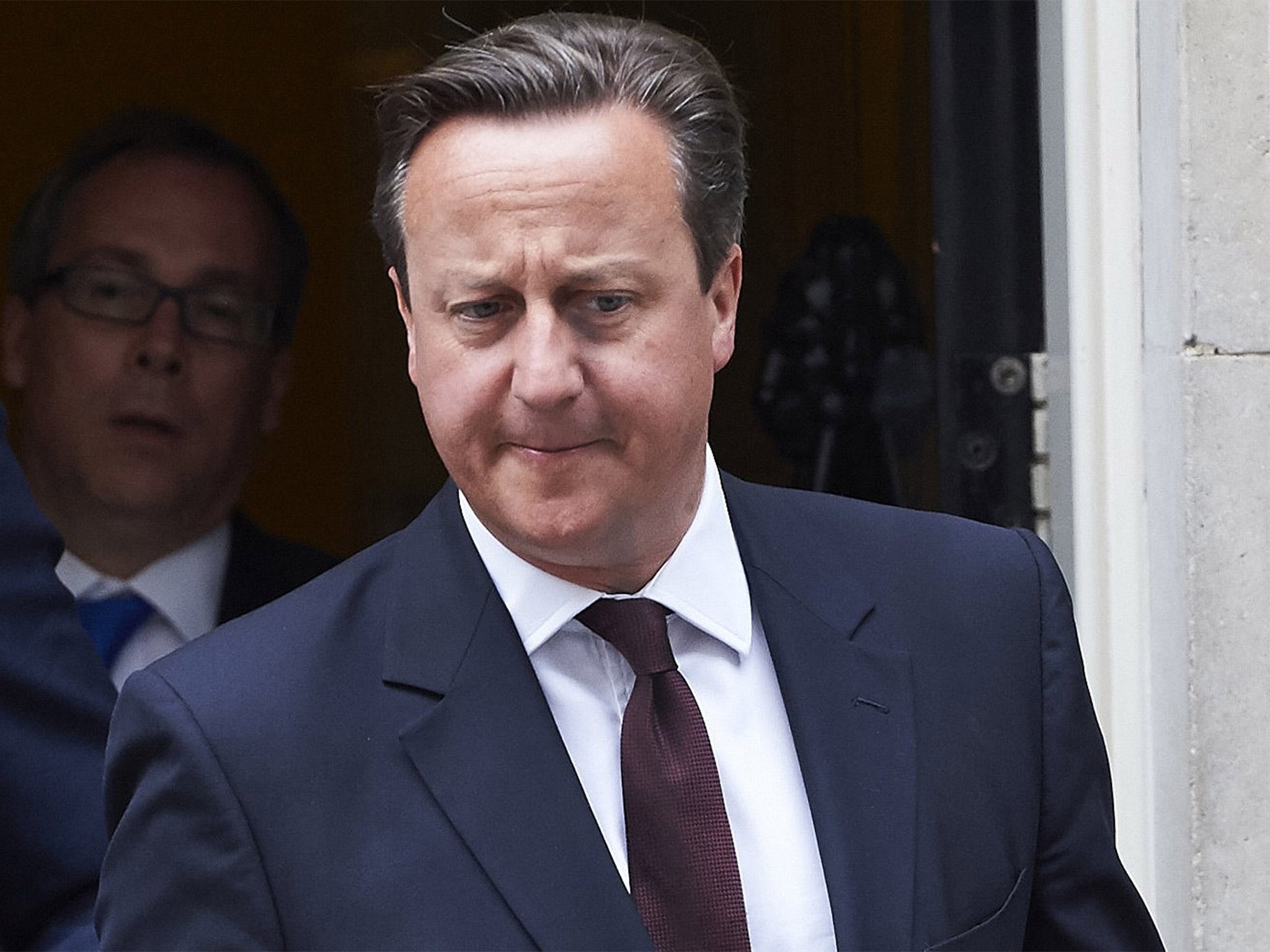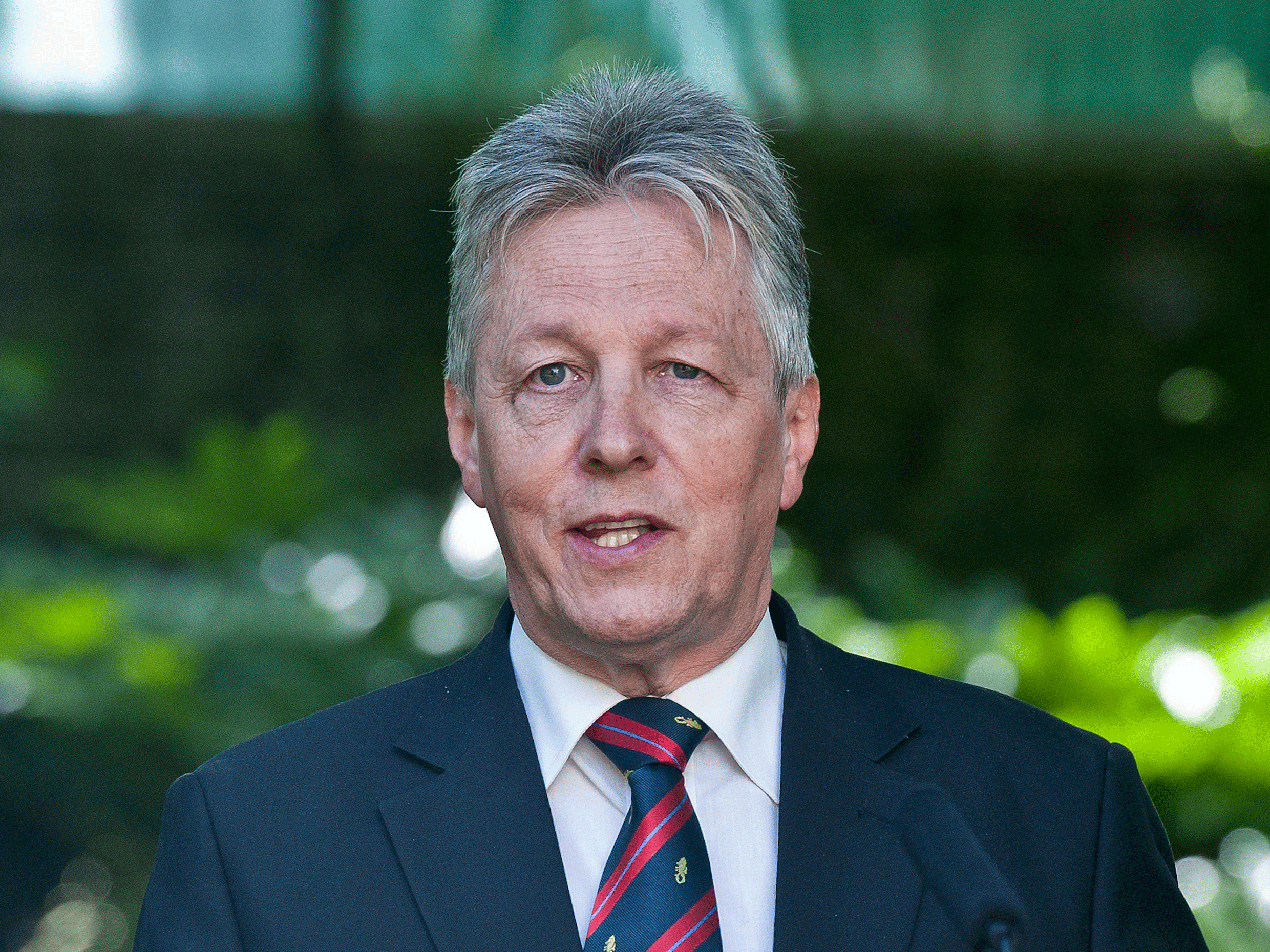David Cameron 'gravely concerned' about Northern Ireland crisis as power-sharing agreement comes close to collapse
Parties reject a DUP proposal to adjourn the Northern Ireland Assembly, pushing the devolved government to the brink of collapse

Your support helps us to tell the story
From reproductive rights to climate change to Big Tech, The Independent is on the ground when the story is developing. Whether it's investigating the financials of Elon Musk's pro-Trump PAC or producing our latest documentary, 'The A Word', which shines a light on the American women fighting for reproductive rights, we know how important it is to parse out the facts from the messaging.
At such a critical moment in US history, we need reporters on the ground. Your donation allows us to keep sending journalists to speak to both sides of the story.
The Independent is trusted by Americans across the entire political spectrum. And unlike many other quality news outlets, we choose not to lock Americans out of our reporting and analysis with paywalls. We believe quality journalism should be available to everyone, paid for by those who can afford it.
Your support makes all the difference.David Cameron is “gravely concerned” about the political situation in Northern Ireland, Downing Street has said as the devolved government in Belfast came close to collapse this afternoon.
The crisis, sparked after Sinn Fein members were linked to a murder of a former IRA man, worsened after a proposal by the Democratic Unionist Party to adjourn the Northern Ireland Assembly was rejected by opposition parties.
First Minister Peter Robinson has said his DUP ministers will quit the Northern Ireland government on Thursday if the Assembly was not adjourned or suspended by the British government, which would force the collapse of Stormont’s power-sharing agreement.

The DUP has sought adjournment or suspension of the Assembly while cross-party talks on the paramilitary crisis are completed. But its proposal was opposed by the Ulster Unionists, the SDLP and Sinn Féin.
The fall of the devolved government has been at the centre of the peace agreement in Northern Ireland and its collapse would be unprecedented, risking the reopening of bitter divisions in the region.
The onus now switches to Mr Cameron, who is holding talks with political leaders and considering the whether to take the significant step of suspending the Northern Ireland Assembly.

The political row erupted after police announced they had arrested three prominent republicans in connection to the murder of Kevin McGuigan Sr, a former member of the Provisional IRA, in Belfast last month and allegations that the IRA still existed.
Sinn Fein’s Northern chairman Bobby Storey, Eddie Copeland and Brian Gillen were questioned at the Serious Crime Suite in Antrim.
Sinn Fein’s deputy first minister Martin McGuinness said it would be a “grave mistake” by the British government to suspend the political institutions in Northern Ireland “at the behest of the Unionist parties”. He accused the DUP of a failure of leadership.
Mr Cameron's official spokeswoman said: "The Prime Minister is gravely concerned about the situation. As he was saying in the House yesterday, we want to see all politicians in Northern Ireland working together to build a better future for the country and working to fulfil its great potential.We have been encouraging talks between the parties so they can work through their issues."
Asked whether the PM was considering suspending the Assembly, the spokeswoman said: "There are obviously now different people calling for different things, and the Prime Minister's calls with the Secretary of State and the First Minister are an opportunity for us to consider what steps should be taken next."
Join our commenting forum
Join thought-provoking conversations, follow other Independent readers and see their replies
Comments